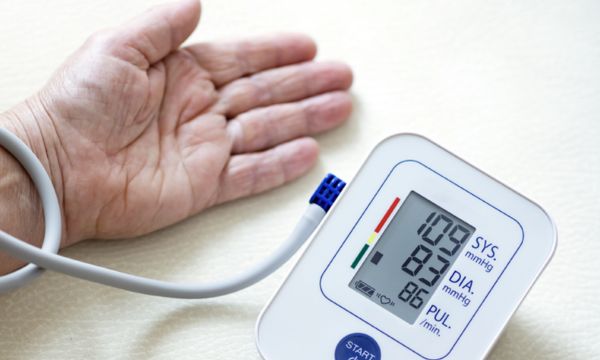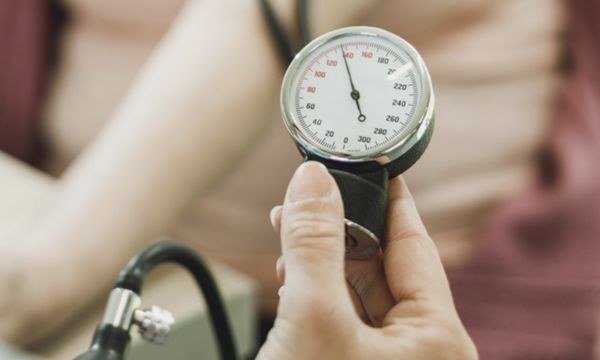Blood Pressure: Everything you need to know
Nowadays, blood pressure is one of the topics that causes the most concern for both doctors and healthcare professionals. It’s certainly no surprise, as high blood pressure is considered one of the leading causes of death worldwide.
Furthermore, as it is a silent disease, where symptoms are uncommon, it is extremely important that the population is aware of this extremely important issue. So much so that doctors recommend that adults after the age of 20 should measure their blood pressure at least once a year. However, if there is a close family member who suffers from high blood pressure, this should be done more frequently and thus obtain an early diagnosis.
In this article I prepared complete material about blood pressure. Remember that it is a vitally important health indicator. Keep reading and follow everything we have prepared for you!
What is blood pressure and its importance

Blood Pressure: Everything you need to know
Arterial pressure (BP) or also called blood pressure is the pressure exerted by the blood that circulates against the walls of the arteries. Therefore, the heart is the organ responsible for causing this pressure as it is capable of propelling blood through the arteries.
In this sense, when the heart contracts (systole), 70 ml of blood is injected into the arterial system. Therefore, during dilation (diastole), the pressure drops. Therefore, blood pressure has two values: the maximum (systolic) and the minimum (diastolic).
Therefore, PA is crucial for regulating blood flow in the body, ensuring the supply of oxygen and nutrients to cells, monitoring cardiovascular health, and preventing serious diseases such as hypertension and stroke. In addition to maintaining adequate brain function, it is undeniably vital in maintaining our health in the long term.
Blood pressure measurements
BP measurements are always expressed in mmHg (millimeters of mercury). The “optimal” blood pressure values are 120 x 80 mmHg (popularly 12 x 8). Values equal to or greater than 130 x 90 mmHg are considered high blood pressure and require greater medical attention.
High blood pressure (hypertension)
And speaking of high blood pressure, here it is. The patient is diagnosed with hypertension when their BP remains high on different occasions, so to reach a definitive diagnosis it is necessary to take two or more separate readings. It is worth noting that hypertension is normally asymptomatic.
There are two types of high blood pressure: primary and secondary. Primary is the most common, being chronic and can appear without apparent causes. In most patients it develops over the years.
In the case of the secondary type, it arises due to some medical condition or the use of medication, and may be transient. Therefore, it may improve if the medical condition is treated or the use of a certain medication is stopped.
Risk factors and symptoms of hypertension

Blood Pressure: Everything you need to know
Find out below what the risk factors and their symptoms are, and even though it is a silent disease, in more advanced cases or during hypertensive crises, symptoms may occur.
Cliff factors
- Genetics;
- Age;
- Obesity;
- Sedentary lifestyle;
- Inadequate diet;
- Excessive alcohol consumption;
- Smoking;
- Chronic stress;
- Certain medical conditions.
Symptoms
- Headaches;
- Dizziness;
- Shortness of breathe;
- Ringing in the ears;
- Blurry vision;
- Nosebleeds (rare cases).
Health complications of uncontrolled hypertension
If hypertension is not adequately controlled, it can lead to several serious health complications. See some of the main ones:
- Cardiovascular diseases: Hypertension is one of the main risk factors for heart diseases such as heart attacks, heart failure and coronary artery disease.
- Cerebrovascular accident (CVA): High BP damages the blood vessels in the brain, increasing the risk of suffering an ischemic and hemorrhagic stroke.
- Chronic kidney disease: If hypertension is left untreated it can damage the kidneys and lead to kidney failure.
- Visual problems: It can damage the blood vessels in the eyes and cause hypertensive retinopathy, resulting in blurred vision or vision loss.
- Peripheral vascular diseases: Can lead to circulatory problems in the legs, increasing the risk of ulcers and amputations in more serious cases.
Tips to prevent hypertension

Blood Pressure: Everything you need to know
Preventing hypertension is essential to maintaining cardiovascular health. Here are some simple tips that will help you prevent high blood pressure:
- Adopt a healthy diet: Include fruits, vegetables, whole grains, lean proteins and low-fat dairy products in your daily diet.
- Reduce alcohol consumption: Moderate alcohol consumption is recommended. This means one drink per day for women and up to two drinks per day for men.
- Practice physical activity regularly: Exercise can help keep your BP under control. Try to get at least 150 minutes of moderate physical activity per week.
- Reduce stress levels: Find healthy ways to better deal with stress, such as meditation, yoga, relaxation exercises or a hobby you enjoy.
- Eliminate smoking: Quitting smoking is one of the best things you can do for your health.
- Get quality sleep: Lack of quality sleep can contribute to high blood pressure. Try to get 7 to 9 hours of sleep per night.
Low blood pressure (hypotension)
Low blood pressure occurs when the blood pressure in the arteries is abnormally low. The exact values that define low blood pressure may vary from one person to another, but in general, low blood pressure is considered when the values are equal to or below 90 x 60 mmHg.
Hypotension can lead to symptoms such as dizziness, weakness, fatigue, blurred vision, nausea and fainting. In severe cases, low blood pressure may be a sign of an underlying problem that requires medical treatment as soon as possible.
Conclusion
Blood pressure is a vital indicator of our health, and its maintenance is crucial to prevent serious complications.If you have concerns about your BP, consult a doctor for evaluation and guidance. Remember that prevention is the key to a healthy life.
 Diabetes: Know the types and symptoms. See how to care!
Diabetes: Know the types and symptoms. See how to care!
Diabetes: Know the types and symptoms. See how to take care and not be part of the statistics! Have you ever wondered why diabetes has become […]
Keep reading Pregnancy: Symptoms, Types and Weekly Evolution
Pregnancy: Symptoms, Types and Weekly Evolution
GestationPregnancy: Symptoms, types and weekly evolution. Stay up to date with everything in today’s post! Did you know that pregnancy is divided into three trimesters? Pregnancy […]
Keep reading What to pack in your baby’s maternity bag
What to pack in your baby’s maternity bag
Finally, the moment so awaited and awaited by the whole family has arrived, to be able to meet this precious being who is on the way. […]
Keep reading